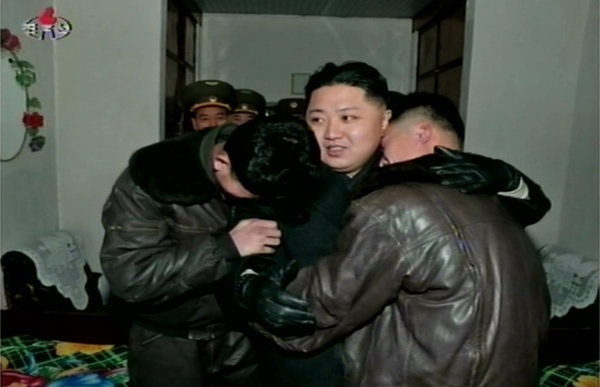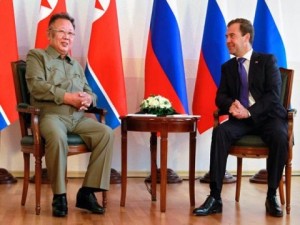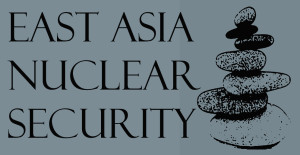Daily Report Archives
Established in December 1993, the Nautilus Institute’s *N*ortheast *A*sia *P*eace and *S*ecurity *N*etwork (NAPSNet) Daily Report served thousands of readers in more than forty countries, including policy makers, diplomats, aid organizations, scholars, donors, activists, students, and journalists.
The NAPSNet Daily Report aimed to serve a community of practitioners engaged in solving the complex security and sustainability issues in the region, especially those posed by the DPRK’s nuclear weapons program and the threat of nuclear war in the region. It was distributed by email rom 1993-1997, and went on-line in December 1997, which is when the archive on this site begins. The format at that time can be seen here.
However, for multiple reasons—the rise of instantaneous news services, the evolution of the North Korea and nuclear issues, the increasing demand for specialized and synthetic analysis of these and related issues, and the decline in donor support for NAPSNet—the Institute stopped producing the Daily Report news summary service as of December 17, 2010.

Nuclear Corruption 2012 to Date
by Richard Tanter – Climate Change and Security Contributor
Fukushima will teach many lessons, but one that does not seem to have sunk in yet is the global link between nuclear power and corruption…
Go to the article

Haksoon Paik observes that over the past months, Kim Jong Un has displayed several new leadership styles characterized by more openness and transparency, which could potentially lead to reform. Paik notes that Kim Jong Un’s new leadership style “seems to have attained popularity among North Koreans…[his] imitation of his grandfather’s style also appears to have given people hope for a better future, reminding them of “those old good days” of the Kim Il Sung era…”. Paik concludes that it is inevitable, under the circumstances, for Kim Jong Un’s policies to be as independence (juche)-seeking, military-first and defensive against external security threats as his predecessors’, but that Kim Jong Un shows signs of being more sensitive and responsive to the demands of the people from below in the domestic realm.
Haksoon Paik is the Director of Inter-Korean Relations Studies Program and the Director of the Center for North Korean Studies at the Sejong Institute, an independent think tank in South Korea.
Go to the article

Georgy Toloraya considers the implications of Russia’s recent decision to forgive 90% North Korea’s 11 billion dollar debt (USD). According to reports, the remainder will be transferred to the Russian Vnesheconom bank account at the North Korean Bank of Foreign Trade, to be used for projects that will promote the development of educational and health care systems and the energy industry. Toloraya notes that the absence of the debt problem will make financial arrangements for future projects, like the proposed gas pipeline, easier, but that the fate of such projects now depends on Seoul’s position, not on Pyongyang’s credit rating.
Georgy Toloraya is the Director of Korean research programs at the Institute of Economy at the Russian Academy of Science.
Go to the article
Nautilus Peace and Security Weekly Report—Contributor’s blog entry for Climate Change Adaptation.
The environment is becoming a noteworthy reason for migration in Asia and the Pacific, especially in low-lying coastal zones and eroding river banks. In the year 2010 alone, climate related disasters and weather extremities forced around 31.3 million people in this region to relocate their dwellings…
Go to the article

Roger Cavazos considers two bounded cases of an artillery attack on Seoul. The question is pertinent since it bears on whether there is conventional stability on the Korean Peninsula. If there is a conventional military stability, that is neither South Korea nor North Korea have the military capacity to successfully invade then both parties have an interest in cutting the Gordian knot of present relations. Legal frameworks such as a Korea Japan Nuclear Weapon Free Zone are far cheaper, less resource intensive yet still confrontational enough to relieve some pressure of an antagonistic relationship. The conclusion is that there is a conventional military stability which allows for the time and effort to seek alternative resolutions such as a Korea Japan Nuclear Weapon Free Zone which allows the DPRK to trade almost no cost legal framework for a tangible security guarantee.
Roger Cavazos consults on Northeast Asia security. He is recently retired from a 22 year career in the United States Army with assignments at tactical, operational, and strategic levels.
This report was originally presented at the East Asia Nuclear Security workshop held on November 11, 2011 in Tokyo, Japan.
Go to the article
Nautilus Peace and Security Weekly Report—Contributor’s blog entry for DPRK.
Continuing with the theme of North Korea paradoxically dividing and unifying Asia, the past few weeks have seen a tremendous amount of activity. Ironically, it also seems the source most likely to report the details of this activity has been the Chinese press…
Go to the article
Peter Hayes evaluates the plausibility South Korea attaining nuclear weapons, either through the development of a domestic nuclear program or though the deployment of weapons from the United States. Hayes reviews recent calls from US Representative Trent Franks and the Saenuri Party’s Chung Mong-joon to arm South Korea with nuclear weapons and concludes that, “Indeed, to the extent that they inflame an already tense situation in Korea, these statements recall an old adage with particular resonance to South Koreans still living with the loss of the ship Cheonan and its crew, viz: “Loose Lips Sink Ships.””
Go to the article





